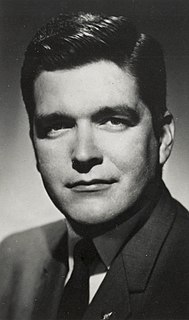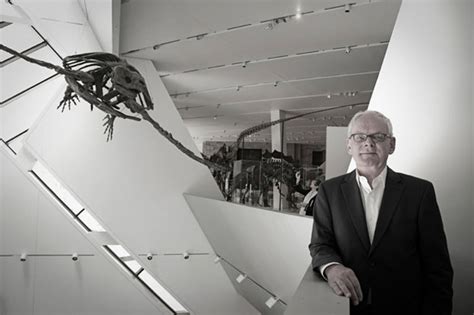A Quote by Edward Bulwer-Lytton, 1st Baron Lytton
Our ideas, like orange-plants, spread out in proportion to the size of the box which imprisons the roots.
Related Quotes
There is a relative order to the fossilized species of plants found in the geologic record for which Flood Geology cannot account, unless you can imagine apple and orange trees with Nike sneakers on their roots, racing past the magnolias and primitive mammals, leaving the ginkgoes back there with the dinosaurs when the Flood waters began to rise.
You told me once of the plants that lie dormant through the drought, that wait, half-dead, deep in the earth. The plants that wait for the rain. You said they'd wait for years, if they had to; that they'd almost kill themselves before they grew again. But as soon as those first drops of water fall, those plants begin to stretch and spread their roots. They travel up through the soil and sand to reach the surface. There's a chance for them again.
I like the fact that I like to think out-of-the-box. Thinking out-of-the-box goes along with dressing out-of-the-box and living out-of-the-box. If you want to come up with a really original design idea and you want to capture a whole new design direction, perhaps the best way to arrive at that is not by acting and thinking and doing like everybody else. That's all.
The growth of all the plants of the garden from seeds and roots keep us mindful, in accordance with of the Parable of the Sower, of the need for our loving, mortified reception and cultivation in our hearts and souls of the seeds and roots of the supernatural gifts and virtues necessary for progress in the ascetical/mystical ascent of our souls toward union with God and with the divine will for Creation and Kingdom
Memory is knowledge; character is the box of values and habits in which our knowledge knocks around. People with a lot of knowledge thrown together in a box that encourages social intercourse and experimentation tend to come up with good ideas, which are the engine of change. Think of Silicon Valley in California, or Oxbridge in the United Kingdom.
The studies I've seen about readability and legibility tend to focus on a specific set of metrics: size, not just the point size, but things like the size of the lower case letters as a proportion of the overall letter height, and line length. People simply can't read really small type set in really long lines.





































